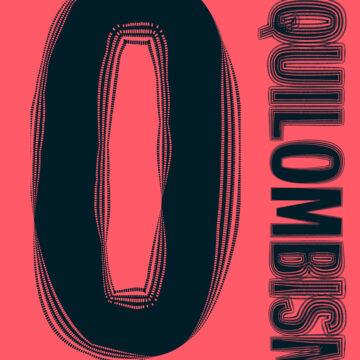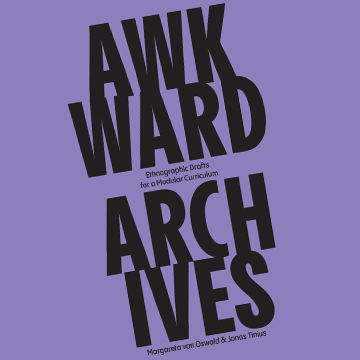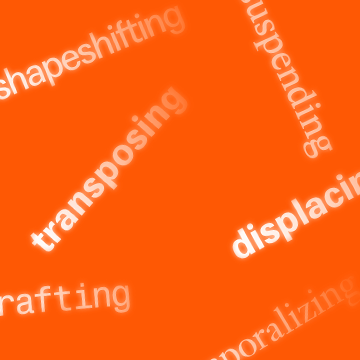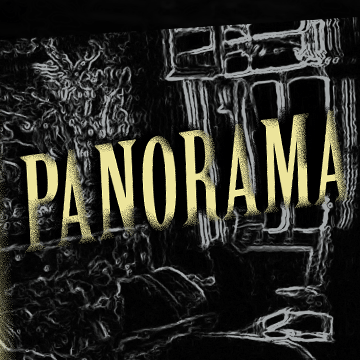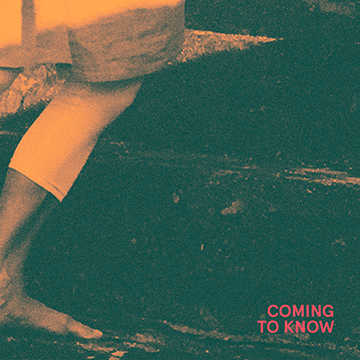Das BOM Magazin, die Publikation zum Projekt Ballett der Massen am Haus der Kulturen der Welt (HKW), greift seltene Perspektiven auf Fußball als Spannungs- und Entspannungsfeld auf.
Tag: HKW
Ballet of the masses. On Football and Cartharsis / BOM Magazine
The BOM Magazine, the publication for the Ballet of the Masses project at Haus der Kulturen der Welt (HKW), focuses on rare perspectives on football as a field of both tension and relaxation.
Echoes of the Brother Countries Reader
The Echoes of the Brother Countries Reader embarks on a rigorous reappraisal of the historical exchanges between the German Democratic Republic (GDR) and its so-called Bruderländer (brother countries). Published on the occasion of the eponymous research and exhibition project at Haus der Kulturen der Welt (HKW), this reader considers the echo as a fulcrum to examine the resonant aesthetic, social, and political implications of an era from the perspectives of those who were deeply affected by the GDR’s state and labour policies, yet gravely overlooked in its histories.
Echos der Bruderländer Reader
Der Reader zum Projekt Echos der Bruderländer versucht eine Aufarbeitung des historischen Austauschs zwischen der Deutschen Demokratischen Republik (DDR) und ihren sogenannten ‚Bruderländern‘. Die Publikation, die anlässlich des gleichnamigen Forschungs- und Ausstellungsprojekts im Haus der Kulturen der Welt (HKW) erscheint, versteht den Begriff des Echos als Dreh- und Angelpunkt, um die ästhetischen, sozialen und politischen Implikationen einer Epoche aus der Perspektive derjenigen zu untersuchen, die von der Staats- und Arbeitspolitik der DDR zutiefst betroffen waren, aber in der Geschichte der DDR kaum wahrgenommen werden.
As though we hid the sun in a sea of stories / Als hätten wir die Sonne verscharrt im Meer der Geschichten
Accompanying the exhibition As Though We Hid the Sun in a Sea of Stories, this reader weaves together essays, conversations, and poetry that trace the multiplicity of worldviews, histories, and archives that have existed within an area of Central and Eastern Europe, Central and North Asia, and further beyond.
O Quilombismo Album
Beyond thinking with quilombismo as a metaphor, O Quilombismo: Of Resisting and Insisting. Of Flight as Fight. Of Other Democratic Egalitarian Political Philosophies. deliberated on the intellectual and political implications of a philosophy and ideology based on the quilombos, mapping the spaces that they have made and continue to make possible today. Featuring over 100 full colour images and installation views, the O Quilombismo Album is a visual record of these acts of opening again, a celebration of conviviality.
O Quilombismo Handbook
The O Quilombismo Handbook is an indispensable companion to the eponymous exhibition. It includes background information on and numerous images of all exhibited works, texts providing further insight into the practice of the participating artists, as well as floor plans and sketches of the exhibition spaces. Two introductory essays provide context for the philosophy of quilombismo and the conceptual framework of the exhibition.
O Quilombismo Handbuch
Das O Quilombismo Handbuch ist die unentbehrliche Begleitpublikation zur gleichnamigen Ausstellung. Darin finden sich Werkinformationen und Abbildungen aller gezeigten Arbeiten, vertiefende Informationen zu den beitragenden Künstler*innen sowie Lagepläne und Skizzen der Ausstellungsräume. Zwei einleitende Essays führen in die Philosophie des Quilombismo und das Konzept der Ausstellung ein.
O Quilombismo Reader (DE)
Der Reader zum Projekt O Quilombismo: Von Widerstand und Beharren. Von Flucht als Angriff. Von alternativen demokratisch-egalitären politischen Philosophien, wendet sich an Leser*innen mit Interesse an den konzeptionellen Hintergründen und den kuratorischen Linien der Ausstellung: Auflehnung, Befreiung, Spiritualität, Ekstase, neue kulturelle Formen und ästhetische Paradigmen, Interpretationen von Kollektivität und Quilombo als Queering.
O Quilombismo Reader (EN)
This reader, published on the occasion of the project O Quilombismo: Of Resisting and Insisting. Of Flight as Fight. Of Other Democratic Egalitarian Political Philosophies, brings the themes of the eponymous group exhibition to those interested in wider conceptual explorations around its multifaceted curatorial threads: insurgence, resistance, liberation, spirituality, ecstasy, new cultural forms and aesthetic paradigms, quilombo as queering, and the reimagination of collectivity.
Awkward Archives
Awkward Archives proposes a manual for academic teaching and learning contexts. An ethnographic research approach is confronted with the demands of archival research as both disciplines challenge their inner logics and epistemologies. Through fieldwork and ethnographic tools and methods, both analogue and digital, the editors take various contemporary archival sites in Berlin as case studies to elaborate on controversial concepts in Western thought. Presenting as such a modular curriculum on archives in their awkwardness—with the tensions, discomfort and antagonisms they pose.
Archives on Show
Archives on Show brings the potential of reformulating the social and political relevance of archives by curatorial means into focus. Based on the specific properties, faculties and methods of curation, the volume highlights those techniques and strategies that deal with archives not only to make their genesis and history apparent but also to open them up for the future.
Panorama
Navina Sundaram is sitting in the editing room in Hamburg. She has managed to reduce the complexity of the Kemal Altun case to the required 2 minutes and 40 seconds for the political magazine; a journalistic feat considering the legal terminology and the international political situation, which must be presented in simple terms. She places her interview with the judge at the back. The audience therefore first gets an impression of perhaps the best-known deportation prisoner of the republic on trial here.
Archives & Crime
To enter a collective archive is to carry an anonymous corpse on your shoulders. You are not investigating how this corpse met its death so much as feeling impelled, somehow, to fill in the gaps that render it anonymous. Whether or not you are hoping to tell the story and share it with others, you might be able to give this corpse a name and lend a meaning to its life. The corpse is the researcher’s question.
Coming to Know
Coming to Know asks how listening to the past together might transform our sense of the knowledge held in common. It sets aside the visual techniques of the archaeological site, the museum, and the larger project of colonial modernity, and instead constitutes itself as a resonant structure—a future-oriented monument to historically situated listening bodies as well as a dwelling place for community now.
A Slightly Curving Place
A Slightly Curving Place asks what it means to listen to the past and its absence which remains. It responds to the practice of acoustic archaeologist Umashankar Manthravadi, whose life and work are a history of sound and technology through the second half of the twentieth century.




